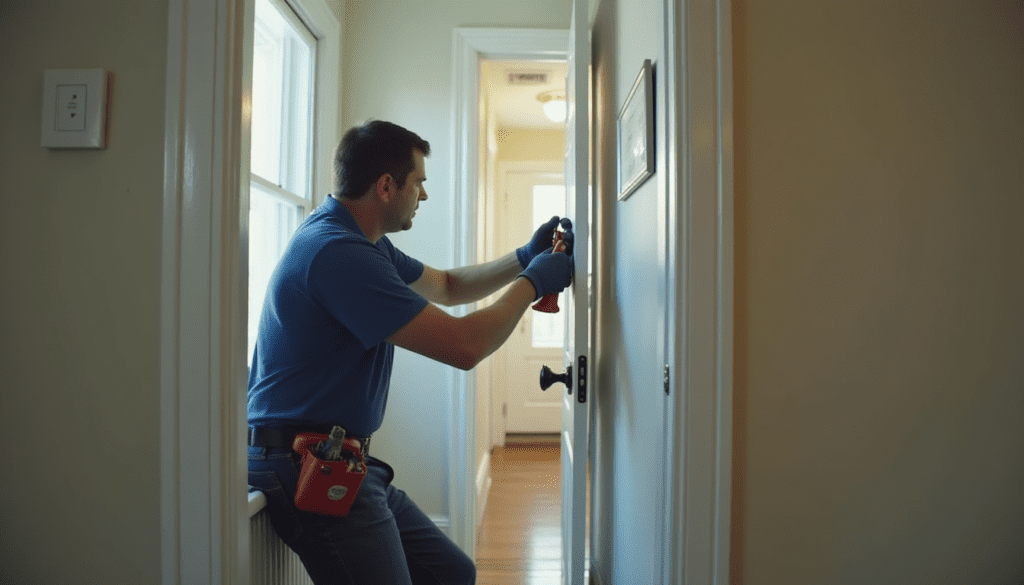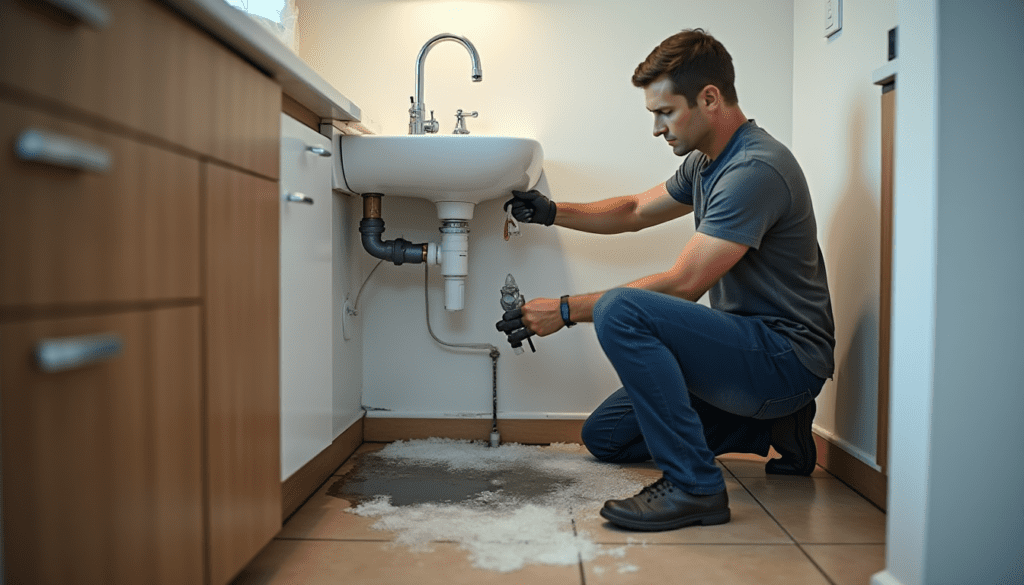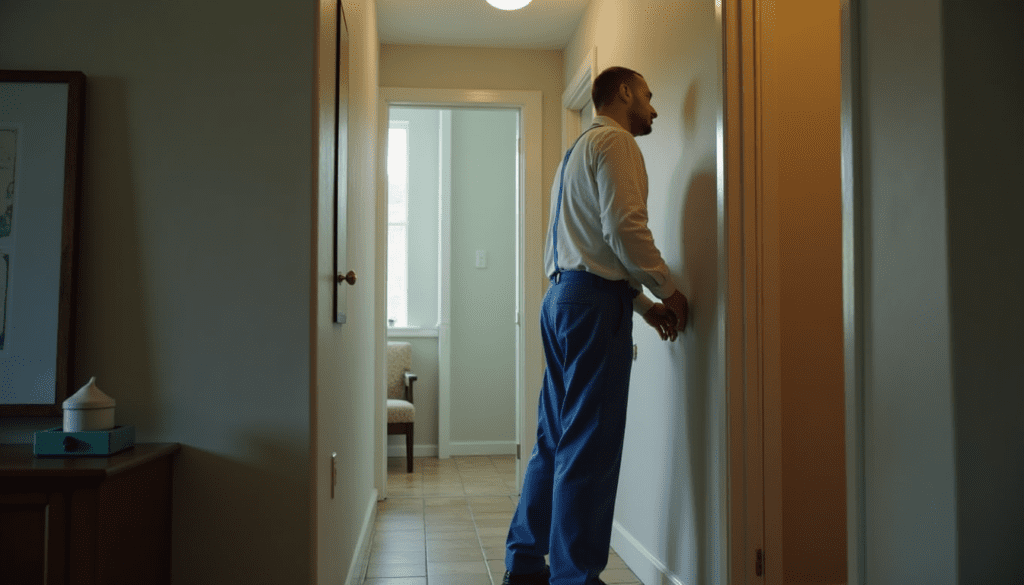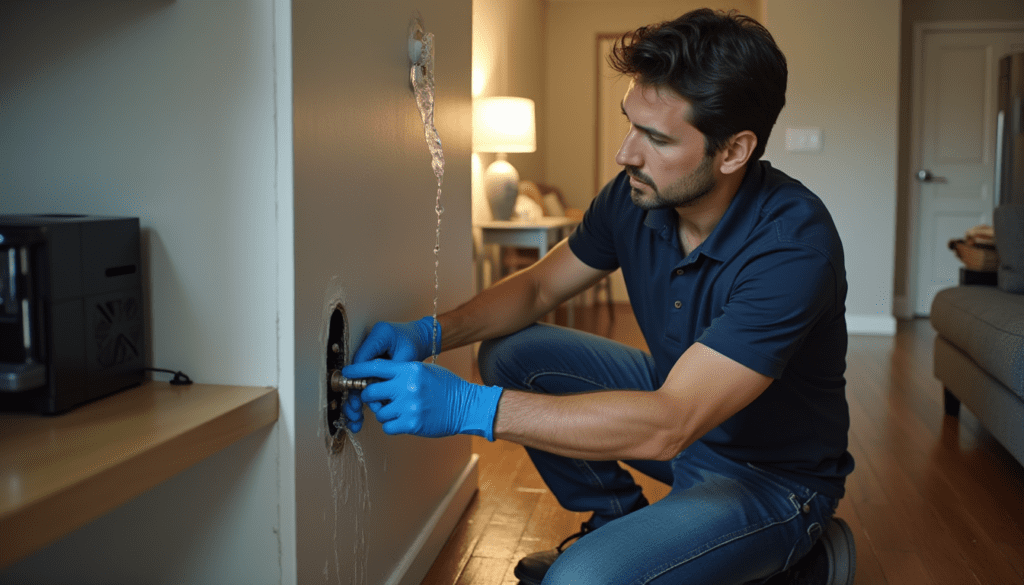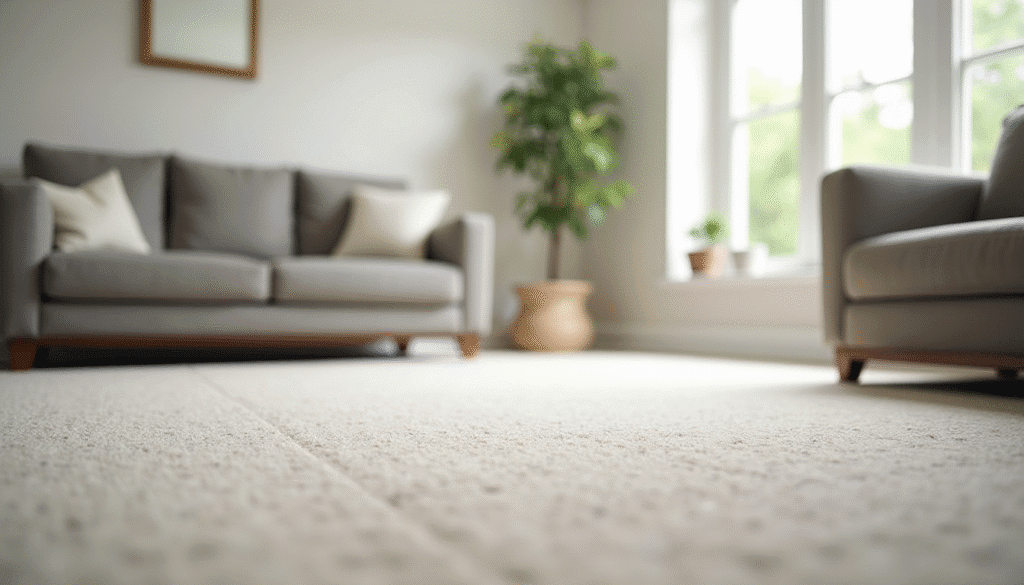When tenants move out of a rental property, one of the most common points of conflict between landlords and renters is carpet cleaning charges. In Belleville, NJ, this issue comes up often because carpets are considered a long-term fixture of most rental homes and apartments. While landlords want to ensure their properties remain clean and presentable for the next tenant, renters want to protect their security deposits and avoid unfair deductions. The key question is simple but critical: can a landlord in Belleville legally charge a tenant for carpet cleaning after move-out?
To answer this properly, it’s important to review New Jersey landlord-tenant law, understand what counts as normal wear and tear, examine the enforceability of lease clauses, and consider how local Belleville practices reflect broader state-level rules. This article will walk through everything both landlords and tenants need to know, using real case insights, expert references, and practical strategies to avoid disputes.
What New Jersey Law Says About Carpet Cleaning Fees
New Jersey’s rental regulations are guided by the Truth in Renting Guide provided by the Department of Community Affairs. While the guide does not explicitly state that landlords can or cannot charge for carpet cleaning, the law is clear about one thing: landlords cannot deduct money from a tenant’s security deposit for normal wear and tear. In other words, if the carpet is simply worn down from years of reasonable use, that is the landlord’s responsibility—not the tenant’s.
However, if the carpet has damage beyond normal wear—such as pet urine, large stains, burns, or ripped fibers—then landlords are allowed to deduct cleaning or replacement costs from the security deposit. The critical distinction lies in whether the condition of the carpet is due to ordinary use or actual tenant-caused damage.
According to NJ Property Manager, landlords must also provide receipts or invoices showing the actual cost of cleaning or repair if they deduct funds. Without this documentation, tenants have the right to dispute the charges and may even take the case to small claims court.
Normal Wear and Tear vs. Tenant Damage
One of the most misunderstood concepts in landlord-tenant disputes is the difference between normal wear and tear and damage caused by tenants. Courts in New Jersey, including in towns like Belleville, use this distinction as the standard in disputes about carpet cleaning fees.
Examples of Normal Wear and Tear
- Carpet fading due to sunlight exposure
- Flattening of carpet fibers in high-traffic areas
- Minor dirt accumulation that comes from everyday use
Examples of Tenant Damage
- Large, permanent stains from wine, coffee, or ink
- Pet urine odors or repeated accidents left untreated
- Burn marks from cigarettes, candles, or irons
- Torn or frayed carpet edges due to negligence

For landlords, this means that routine cleaning or shampooing after a tenant moves out cannot automatically be charged to the tenant. For tenants, it means documenting the carpet’s condition at both move-in and move-out is vital to avoid being held responsible for issues that are simply natural aging of the property.
When Landlords Can Legally Charge for Carpet Cleaning
In Belleville, landlords are legally allowed to charge tenants for carpet cleaning only under specific conditions. These include:
- Excessive dirt or stains: If carpets are left in a condition that goes beyond normal use, professional cleaning fees can be deducted.
- Pet-related damage: Strong odors, repeated urine accidents, or pet hair requiring deep cleaning qualify as tenant responsibility.
- Neglect: If carpets show signs of damage from improper care, such as never vacuuming or allowing mold to form, the landlord can charge cleaning or replacement costs.
It is important to note that charges must be reasonable and documented. A landlord cannot charge $500 for a carpet cleaning job that costs $150. Receipts or invoices from a professional cleaning company must be presented if challenged.
Landlords who fail to provide evidence risk losing disputes, and tenants who feel charges are unfair may contact the New Jersey Department of Community Affairs for guidance.
Understanding Lease Clauses About Professional Carpet Cleaning
Another major point of contention arises when leases in Belleville, NJ, include clauses requiring tenants to pay for professional carpet cleaning upon move-out. The enforceability of these clauses depends on how they are written and whether they conflict with state law.
If a lease states that tenants must return carpets in “professionally cleaned condition,” courts may still interpret this requirement in light of the normal wear and tear rule. For example, a judge may decide that routine cleaning is the landlord’s cost of doing business, unless there is proof of damage beyond wear and tear.
However, if carpets are left in significantly worse condition than at move-in, and the lease clearly outlines the tenant’s responsibility, the clause may be enforceable. In such cases, courts often side with landlords—but only if the charges are backed up with invoices and evidence.
Tenants should always request clarification at the start of their lease to avoid surprises, and landlords should ensure their lease agreements comply with both state law and local standards in Belleville.
How Courts Decide What’s Reasonable in Carpet Cleaning Disputes
When a dispute arises in Belleville or other parts of New Jersey, the courts carefully examine whether a carpet cleaning charge is reasonable and supported by evidence. Judges look at the lease agreement, the move-in and move-out condition of the property, and the type of wear the carpet shows. The principle that guides the decision is fairness: landlords cannot treat tenants as a source of profit, and tenants cannot neglect the property without consequence.
For example, if a landlord deducts the full cost of replacing a carpet that is already ten years old, courts often reject the claim. Instead, judges expect landlords to account for depreciation. On the other hand, if a tenant leaves behind large stains or pet odors that clearly shorten the carpet’s useful life, the landlord may be allowed to deduct part of the replacement cost.
Legal precedents in New Jersey show that landlords who keep strong documentation—before-and-after photos, inspection notes, and professional cleaning invoices—are far more successful in defending their charges. Tenants, on the other hand, often win disputes if landlords lack evidence or attempt to charge for ordinary cleaning costs. This balance underscores why both sides need to be proactive and transparent.
Belleville, NJ Practices: What Local Landlords and Tenants Should Know
Belleville landlords often face the same issues as those across Essex County, but local practices highlight a few unique considerations. Because Belleville is a mix of older multi-family homes and updated apartment complexes, carpets vary in quality and expected lifespan. Many landlords in Belleville include carpet care clauses in their leases, while tenants frequently rely on their security deposits to recover moving expenses. This makes disputes common when carpets are not left in pristine condition.
In nearby communities such as Caldwell, similar cases have already appeared. As covered in our article on Caldwell carpet cleaning disputes, landlords who itemize charges and provide receipts typically succeed. Belleville tenants can expect the same outcomes: courts will not side with landlords who issue blanket charges without proper documentation.

Local property managers also advise that landlords in Belleville keep carpets professionally cleaned between tenants, regardless of responsibility. This ensures healthier living conditions and prevents lingering odors, which can make it harder to rent the property again. For tenants, this means carefully reviewing the lease and documenting the condition of the carpet at move-in to avoid being charged unfairly at move-out.
Carpet Cleaning and Security Deposit Deductions
In New Jersey, including Belleville, a tenant’s security deposit is strictly regulated. Landlords can only make deductions for unpaid rent, damage beyond normal wear, or cleaning costs that are proven to be the tenant’s responsibility. By law, the deposit must be returned within 30 days of move-out, and any deductions must be itemized in writing.
For carpet cleaning specifically, this means that landlords must:
- Clearly show what condition the carpet was in before and after the tenancy.
- Provide receipts or invoices from cleaning companies.
- Explain how the cost relates to tenant-caused damage and not routine maintenance.
If these steps are not followed, tenants have strong grounds to dispute deductions. In fact, New Jersey law allows tenants to sue for up to double the deposit amount if landlords wrongfully withhold funds. This legal risk encourages landlords in Belleville to act carefully and fairly when charging for carpet cleaning.

Tenants should always request a written explanation for any deduction. If the deduction seems unfair, they can consult the New Jersey Department of Community Affairs or pursue the matter in small claims court. For landlords, maintaining a professional approach with receipts and inspection checklists is the best defense against disputes.
Tenant Rights: Protecting Yourself from Unfair Charges
Tenants in Belleville have clear rights under New Jersey law. If they face unfair carpet cleaning charges, they have several tools to protect themselves. The most important is documentation. Taking dated photos or videos of the carpet at both move-in and move-out is often enough to win a dispute if the landlord attempts to charge for normal wear and tear.
Tenants also have the right to demand receipts for any deductions. If a landlord cannot show proof of professional cleaning or replacement, tenants are not legally responsible for those costs. Furthermore, if the charges exceed what is reasonable, courts often side with tenants and may even award damages if the landlord acted in bad faith.
Another option is negotiation. Many disputes can be avoided if tenants communicate openly before moving out. Asking the landlord about their expectations for carpet cleaning and offering to arrange professional service directly can sometimes prevent conflicts.

In addition, tenants can use resources like the DoorLoop guide on tenant rights to better understand how to dispute charges effectively. In Belleville, where rental housing is competitive, being informed and proactive can make a big difference in protecting one’s financial rights.
Move-In and Move-Out Inspections: Why They Matter
One of the simplest ways to prevent disputes over carpet cleaning fees is to conduct thorough move-in and move-out inspections. In Belleville, many landlords and property managers use detailed checklists, photographs, and sometimes even third-party inspection services. These inspections create a clear record of the carpet’s condition at the start and end of a lease.
For landlords, inspections serve as strong legal evidence if deductions become necessary. For tenants, inspections provide protection against being blamed for pre-existing damage. Both parties benefit from the clarity inspections provide.

Best practices for inspections include:
- Documenting carpets in each room with clear, dated photos.
- Recording any stains, odors, or damage at move-in.
- Reviewing the inspection report together to avoid misunderstandings later.
Ultimately, inspections reduce disputes, save time, and build trust. In Belleville, where rental turnover can be high, these practices are especially valuable. They also ensure that landlords remain compliant with New Jersey’s landlord-tenant regulations, while tenants keep their deposits safe from unfair deductions.
Examples and Case Studies from New Jersey Landlord-Tenant Disputes
Looking at real-life examples can help both landlords and tenants in Belleville understand how carpet cleaning disputes play out. In one Essex County case, a landlord attempted to withhold the entire security deposit to cover carpet replacement, even though the carpet was already more than a decade old. The tenant contested, and the court ruled in favor of the tenant, noting that the carpet had already exceeded its useful life and that normal wear and tear cannot justify a deduction.
In another case, a tenant left behind severe pet stains and strong odors. The landlord presented move-out inspection photos and professional cleaning invoices totaling $275. The court ruled in the landlord’s favor, allowing the deduction because the damage clearly went beyond ordinary use. This case illustrates how documentation, invoices, and reasonableness make all the difference in legal outcomes.

For Belleville residents, these precedents show that success in disputes usually depends on clear records. Tenants should not assume all charges are valid, and landlords should not assume all deductions will be approved. Instead, both sides should prepare to show proof and maintain transparency.
Frequently Asked Questions About Carpet Cleaning Fees
Can landlords charge for carpet cleaning in Belleville, NJ?
Yes, but only if the carpet damage goes beyond normal wear and tear. Routine cleaning is the landlord’s responsibility, but excessive stains, odors, or damage can justify charges.
Do landlords need receipts to deduct cleaning costs?
Absolutely. New Jersey law requires landlords to provide itemized deductions with receipts or invoices. Without proof, deductions can be challenged in small claims court.
What counts as normal wear and tear for carpets?
Fading, flattening of fibers, and light dirt from everyday use are normal wear. Burns, large stains, pet odors, and torn fibers are considered tenant damage.
Are carpet cleaning clauses in leases enforceable?
Courts in New Jersey may uphold them if they align with state law. However, landlords cannot charge tenants for cleaning if the condition of the carpet is consistent with normal use. Clauses that conflict with the Truth in Renting Guide may not hold up in court.
How can tenants dispute unfair carpet cleaning charges?
Tenants can request receipts, submit move-in/move-out photos, and file claims in small claims court if needed. They can also use resources from the NJ Department of Community Affairs to support their case.
Tips for Landlords: Documenting and Communicating Cleaning Costs
For landlords in Belleville, the best way to avoid disputes is to focus on documentation and communication. Start with a thorough move-in inspection, use a detailed lease that specifies responsibilities, and document the carpet’s condition at every stage.
- Take clear, dated photos at move-in and move-out.
- Hire professional cleaning companies and keep receipts.
- Provide tenants with itemized statements if deductions are made.
- Set realistic expectations about carpet lifespan—typically 7–10 years.
Transparent communication prevents most disputes. When tenants know exactly what to expect, they are less likely to feel blindsided by charges at the end of a lease. Property managers in Belleville often recommend explaining carpet cleaning policies in person when tenants sign their lease, reducing confusion later.

Tips for Tenants: Avoiding Carpet Cleaning Disputes
Tenants can take proactive steps to protect their deposits and avoid unfair charges. The most important is to maintain carpets during the lease. Regular vacuuming, cleaning up spills immediately, and arranging occasional professional cleaning can make move-out much smoother.
Other helpful strategies include:
- Take photos and videos of carpets on move-in day.
- Report damage or stains to the landlord promptly.
- Ask the landlord about their expectations before moving out.
- Consider arranging professional cleaning yourself to avoid inflated charges.
Being proactive not only keeps the property in good condition but also protects the tenant’s finances. For Belleville renters, where deposits can often equal one-and-a-half months’ rent, these steps can save hundreds of dollars.

Best Practices for Both Parties in Belleville, NJ
At the end of the day, carpet cleaning disputes often arise from misunderstandings. Landlords in Belleville should remember that routine cleaning is their cost of doing business, while tenants should take care to prevent excessive damage. Both parties benefit from inspections, photos, receipts, and honest communication.
Some best practices include:
- Use clear lease agreements with fair, legal clauses.
- Conduct joint inspections with tenants whenever possible.
- Document all costs with receipts and provide itemized statements.
- Encourage tenants to maintain carpets throughout their tenancy.
By following these steps, landlords and tenants in Belleville can avoid legal disputes and maintain a positive rental relationship. Both sides should treat carpet care as a shared responsibility, with fairness at the center.
Conclusion: Protecting Your Rights and Maintaining Fairness
Carpet cleaning charges at move-out remain one of the most debated landlord-tenant issues in Belleville, NJ. The law is clear: landlords cannot deduct for normal wear and tear, but they can charge for tenant-caused damage. Tenants, in turn, have strong rights to demand receipts, dispute unfair charges, and recover wrongfully withheld deposits.
Whether you are a landlord seeking to protect your property or a tenant trying to safeguard your deposit, the key is documentation, communication, and understanding the law. By applying best practices and staying informed, both sides can avoid unnecessary disputes and keep the rental process fair and professional.
For more insights on managing rental property disputes in New Jersey, explore related resources like raising rent after a lease expires in Belleville and our guide on carpet cleaning charges in Caldwell. If you need personalized assistance, reach out to RentShield Property Management for expert guidance.

